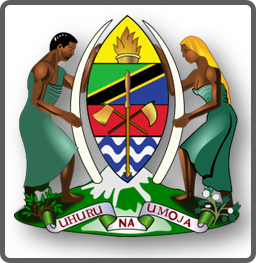 |
| AJIRA SERIKALINI |
AJIRA TANZANIA 2020 / NAFASI ZA KAZI 2020
LOCATION
Kilimanjaro
Region is one of Tanzania's 31 administrative regions with a postcode
number 25000 [1]. The regional capital is the municipality of Moshi.
According to the 2012 national census, the region had a population of
1,640,087, which was lower than the pre-census projection of
1,702,207.[2]:page 2 For 2002-2012, the region's 1.8 percent average
annual population growth rate was the 24th highest in the
country.[2]:page 4 It was also the eighth most densely populated region
with 124 people per square kilometer.
Recommended:
Download Your National ID (NIDA) Here | Download NAMBA NA KITAMBULISHO CHAKO CHA NIDA. BONYEZA HAPA!
The
region forms part of the Northern Tourism Circuit in Tanzania. It is
home to the Kilimanjaro National Park, the Mkomazi National Park, the
Pare Mountains, Lake Jipe, Lake Chala, tropical forests and waterfalls.
The region is bordered to the north and east by Kenya, to the south by
the Tanga Region, to the southwest by the Manyara Region, and to the
west by the Arusha Region.
Read Also:
HISTORY
Kilimanjaro
region was officially established in 1963 with two districts:
Kilimanjaro and Pare. The region was part of the Northern Province in
the pre-independence Tanganyika. Northern Province’s districts included
Arusha and Mbulu, while Pare District was a part of Tanga Province.
Recommended:
Of
the region's six districts, four traditionally had Chagga settlements,
which are Hai District, Moshi District, Rombo District, and Siha
District. The other two, Mwanga District and Same District, have
historically included Pare settlements. However, during colonial rule in
the late 19th century to the middle of the 20th century, the region was
divided into two main districts: Moshi district, which was composed of
all the areas settled by the Chagga people on the slopes of the
mountain, and Pare district, which was a Pare tribe settlement. The
region, from earlier times, had been settled by the people collectively
called the Chagga, the Maasai, Wakwavi, and Waarusha (in the lower parts
of Mount Kilimanjaro), and the Pare on the Pare mountains. These have
been intermingling, trading, and even fighting from time to time for
various socio-political reasons. Later, other tribes also migrated to
the area.
Recommended:
CLICK LINK HAPA CHINI KU DOWNLOAD PDF FILE YA MAELEZO KAMILI AND MODE OF APPLICATION: To read full jobs details please download PDF file through the link below:
DOWNLOAD PDF FILE HERE!
DOWNLOAD PDF FILE HERE!





No comments:
Post a Comment